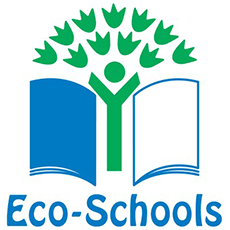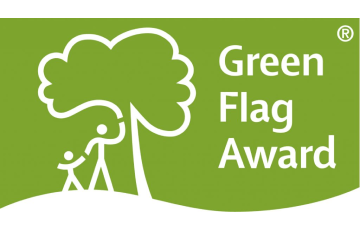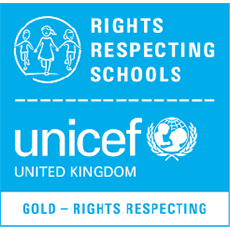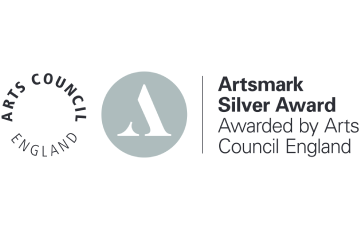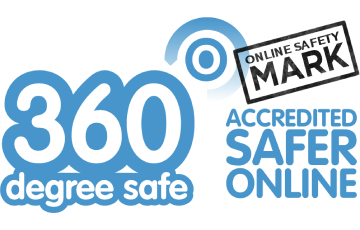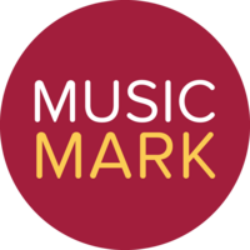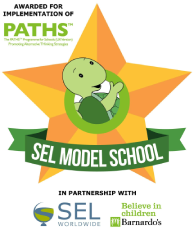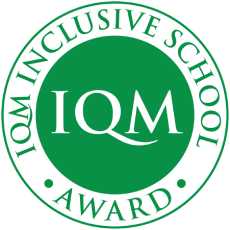- Home
- Classes
- All About Lyme
- Our School
- Vision and Values
- Prospectus
- Staff
- Breakfast and After School Club
- Corporate Social Responsibility
- Online Safety
- Pastoral Support
- Rights Respecting School
- School Holiday Dates 2024-25
- School Holiday Dates 2025-26
- School Meals
- School Opening Times
- SEN and Adaptive Teaching at Lyme
- Uniform
- Wrap Around Care at Lyme
- Young Carers
- Activities
- Extra Curricular Activities
- Academic Enrichment
- Forest School
- Easter Journey for Y5
- Send My Friend to School Campaign
- World Book Day 2019
- Lyme's Anti-Bullying Video
- Staying Safe Online!
- Extreme Reading
- HEALTH AND WELL-BEING WEEK 2019
- SPORTS DAY 2019
- ARTS WEEK 2019
- SCIENCE CLUB 2019
- SCIENCE WEEK 2019
- Learning Challenge Curriculum Exhibition
- Sports Relief 2018
- Social Enrichment
- Residentials and Trips
- School Money
- School Spider Parent App Guide
- Governors
- Curriculum
- British Values
- Curriculum
- Early Years Curriculum
- Maths
- Overviews for Parents Autumn 1 2024
- Overviews for Parents Autumn 2 2024
- Overviews for Parents Spring 1 2025
- Overviews for Parents Spring 2 2025
- Overviews for Parents Summer 1 2025
- PATHS
- Personal Development
- Phonics
- Reading
- Subjects
- Writing
- English and Maths End of Year Expectations
- Assessment
- Statutory Assessments 2024/25
- Protected Characteristics
- Newsletters
- Parent Voice
- Pupil Leadership
- Safeguarding
- Statutory Information
- Pupil Voice
- Contact
Writing
WRITING AT LYME
Subject Leader Introduction
Hello, I am Miss Hope and I am the subject lead for writing at Lyme. I believe that secure writing skills are essential to ensure progression and to enable achievement across the curriculum. These skills will prepare our pupils effectively for adult life and will give our children the tools they need to participate fully as a member of society. Therefore, writing is something that we prioritise in our curriculum. We recognise the importance of nurturing a culture where children take pride in their writing, can write clearly and accurately and can adapt their language and style for a range of contexts. We place challenging high-quality texts at the heart of our lessons to inspire writing from an early age and our vocabulary-rich learning environment feeds directly into children's writing outcomes.
Curriculum Intent
At Lyme Community Primary School, we believe that the ability to write with confidence and accuracy is a vital life skill. Writing is a complex process that draws upon more than handwriting and spelling. It is the ability to effectively communicate ideas, information and opinions through the printed word in a wide range of contexts. Successful writers understand the social function and characteristics of writing in order to use different genres appropriately, matching it to audience and purpose. Writing also requires the writer to understand and accurately apply the conventions of syntax, spelling and punctuation. We aim to equip children with the skills necessary to achieve this, throughout the curriculum.
We also seek to take advantage of opportunities to make links across the curriculum. Cross-curricular writing projects allow pupils to write for a purpose and transfer and improve the language structures they have been practising. Writing in other subjects offers a creative way to develop the children's skills while motivating them to learn through stimulating, interrelated topics.
Implementation
At Lyme, we want children to enjoy writing from an early age. Our ultimate intention is to enable children to independently and effectively communicate in writing for a wide range of audiences. Integral to the process of writing is speaking and listening. In the Foundation Stage we find that many of our children on entry have limited language skills i.e. the ability to speak clearly and often limited word knowledge and general knowledge/experiences. Therefore, the curriculum is taught through the Miniature Tales Toolkit, Drawing Club and a range of quality texts. Tales Toolkit is an interactive, child-led resource featuring easy to remember symbols representing story structure. We use tales toolkit to develop children’s communication and language skills. Through the resources, children tell their own stories. Stories about the things that interest them, stories that use props and materials from their world. Drawing Club is based around a range of picture books, tales and animations. It involves a short period of Time Together as a whole class followed by time with children exploring their ideas . Additionally, extra language interventions are planned for those with additional needs through WellComm and SALT recommendations to develop their language skills.
Throughout EYFS children are encouraged to attempt their own emergent writing and their efforts are valued and celebrated. Emergent writing is encouraged through the use of different writing materials, including felt tipped pens, crayons, chalk, sand, magnetic letters, big brushes, water, paint and computers, as well as writing in the role-play areas, such as postcards, menus, invitations, labels etc. As their phonic knowledge increases, so does their ability to write independently. At the same time, their knowledge of key words is supported through reading and writing activities, including shared reading and writing. However it is evident that many children do not have the fine motor (or gross) skills at this age to hold mark making equipment effectively so a great emphasis is placed on developing these skills first and foremost. For those children who are ready, legible letter formation is explicitly taught and modelled on a daily basis. A wide variety of opportunities are provided for children to engage in writing activities and independently apply their phonic skills through role play, creative activities and the outdoor area.
The aim of our writing curriculum throughout Key Stages 1 and 2 is to embed a consistent and sequenced approach which immerses pupils in language and literature. Our pupils read carefully selected Vehicle texts and a range of other quality reading materials and they hone their writing based on texts, experiences, knowledge and aspirational models. Our writing scheme, Ready, Steady, Write by Literacy Counts, ensures that children are given the opportunity to write in order to persuade, to inform and to entertain. This consistent approach ensures that children are highly competent writers by the end of KS2. Our text-led approach to writing also allows us to prioritise reading for pleasure, and this alongside our structured phonics programme and discrete reading lessons, means that reading permeates every stage of our writing curriculum and indeed beyond.
Ready Steady Writeempowers teachers to provide high-quality teaching of writing through high-quality literature. These detailed units of work centre on engaging, vocabulary-rich texts, with a wealth of writing opportunities within and across the curriculum. They provide:
Clear sequential Episodes of Learning
Vocabulary learning and contextualised spelling, grammar and punctuation
Wider reading for the wider curriculum
Example Texts linked to writing outcomes
A wealth of supporting resources
Our writing curriculum is developed around a sequence of high quality age-appropriate texts, using Literacy Count’s Ready Steady Writeunits of learning. We use each book to create opportunities to:
develop grammar and punctuation knowledge and understanding to use and apply across the wider curriculum, through sentence accuracy sessions;
explore the Writing structure and features of different genres, identifying the purpose and audience;
plan and write an initial piece of Writing with a clear context and purpose before evaluating the effectiveness of Writing by editing and redrafting.
Daily Sentence Accuracy is a vital element of Ready, Steady, Write and encompasses word, sentence, and punctuation from the statutory National Curriculum programme of study for writing and vocabulary, grammar and punctuation. This daily practice also helps build fluency and stamina for writing. After the Daily Sentence Accuracy, the lessons follow the immerse, analyse, plan then write sequence.

Staff regularly update working walls to ensure learning is documented within a unit of work. Class teachers ensure that the Writing process is clearly evident on working walls, with modelled examples being available to all pupils as the sequence of lessons develops.
Within this system, writing is taught in a range of ways:
Modelled Writing: The teacher talks aloud the thought processes as a writer. They model strategies in front of the children, communicating the strategies being used. Teachers may model writing skills such as punctuation, rehearsal, proof reading, editing, word selection, sentence construction and paragraphing.
Shared Writing: This is a collaborative approach in which the pupils contribute their ideas and thoughts for the teacher to write. The teacher models and teaches specific writing skills and there is the opportunity for discussion to choose the most effective or suitable ideas.
Supported Composition: The children work in pairs to provide the next sentence of the text. This may follow from the modelled or the shared writing process.
Guided Writing: Pupils are grouped by writing ability. The teacher or other adult works with the group on a carefully selected task appropriate to that group’s needs and targets. This will focus on a particular aspect of the writing process rather than writing a complete piece.
Independent Writing: Children are given opportunities to apply their understanding of the text type in their own writing. They are encouraged to plan, draft, write, edit and assess their work, applying the skills they have learnt throughout the unit of work on that particular genre.
As children progress throughout the school, they are given many opportunities to write independently and to apply the skills they have learnt and practised in shared and guided writing. Wherever possible, writing is made meaningful by being planned for a specific purpose or in response to a particular experience. We utilise a great variety of materials, visual and written, to inspire their writing.
Daily phonics lessons build children’s phonic and spelling knowledge enabling them to sound out words and spell high frequency words correctly. Children throughout the year groups have spellings to learn relevant to their age, and these focus on high frequency words or a particular spelling pattern.
In our school we aim to instil a positive attitude towards handwriting. Handwriting is discretely taught daily in EYFS and the beginning of Y1, at least twice a week in Y2 and once a week in KS2.We introduce joined up handwriting at an early stage of a child’s development. From Year 1 students are encouraged to develop a joined, confident handwriting style that is clear, legible and fluent by the end of Year 2. Many of our children require further consistent practise of joining handwriting in LKS2. Therefore, as a school we made the decision to withhold pens until Y4 to ensure that the majority of children have secure letter formation.
Vocabulary, grammar and punctuation is planned and taught as an integral part of each unit of work. The objectives are carefully matched to the unit of work to enable them to be taught and learnt within a meaningful context. It is evident that the lack of language affects our pupils’ vocabulary so at Lyme we place a great of emphasis on developing vocabulary through English and also through cross-curricular topics. We always aim to invite visitors, book workshops and organise visits to boost language and vocabulary and give the children the first -hand experiences to write about.
Writing has obvious links to many subjects in school and teachers aim to make the most of those links to create exciting and purposeful writing opportunities. School trips and visitors are an integral part of our Learning Challenge curriculum and often foster inspiration to write. Children practise and develop their writing skills in other subjects such as science, history or geography and use knowledge from other subjects to inform and inspire writing in English lessons.
Assessment and Curriculum Planning
Teachers assess student's work in writing. The on-going, formative short-term assessments that teachers make as part of every lesson help them to adjust their daily plans. They match these short-term assessments closely to the teaching objectives. Written or verbal feedback is given as next steps to help guide student's progress. All students are encouraged to use self -assessment to think about how they could improve their writing. We use green editing pens to make clear where children have self-edited.
In Early Years, children are assessed against the EYFS age related criteria within the strand of Literacy Development, though aspects of writing can be seen in many areas of the EYFS curriculum.
At KS1 & 2 we use the National Curriculum charted through objective statements to monitor individual pupil progress against the key stage expectations. The system assesses pupil progress against age appropriate descriptors; this enables teachers to monitor which pupils are working towards their age-related expectations and who may be exceeding these goals. This information is then used to inform curriculum planning outlining how additional support or challenge can be provided in order to meet the needs of our pupils. This information is also used by teachers when reporting to parents. In addition, In Y2 and Y6 we use the teacher interim framework for writing to assess writing at the end of the year.
Useful websites to support learning at home:
Early years English - BBC Bitesize
Letters and Sounds, Literacy, Foundation - Interactive Whiteboard Resources - Topmarks
Lyme Community Primary, Lyme St, Newton-le-Willows WA12 9HD


